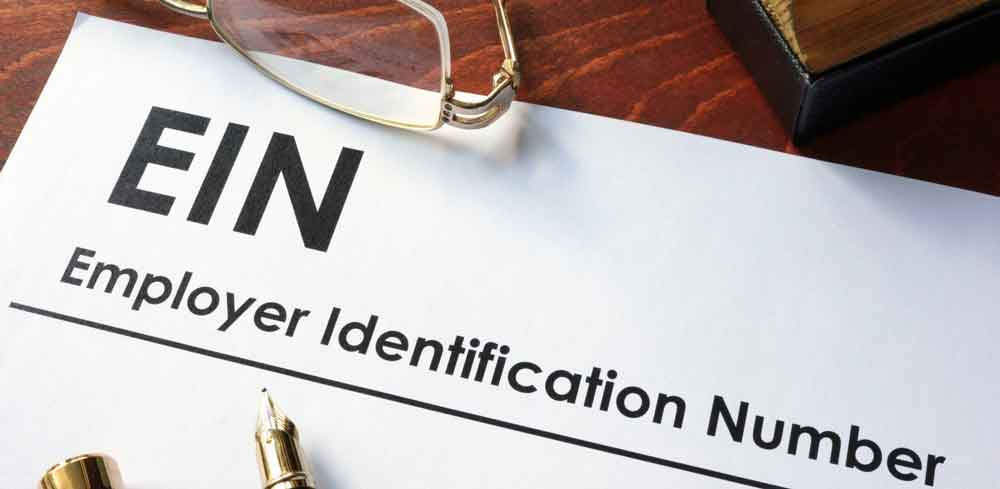Does Your Canadian Company Need an EIN?
Allan Madan, CPA, CA

In today’s increasingly globalized market, many Canadian companies and sole proprietors are expanding their reach and tapping into the U.S. economy. Serving American customers offers significant potential for growth, but it also brings a unique set of challenges, particularly when it comes to navigating the complexities of cross-border business.
One of the most critical aspects of this process is understanding whether you need a federal employer identification number, otherwise known as an EIN. The EIN is more than just a formality – it’s an important part of ensuring that your business operations in the U.S. are compliant with tax regulations and protected from unnecessary penalties from the Internal Revenue Service (IRS).
In this blog post, we’ll break down the cases where your Canadian company or sole proprietorship may require an employer identification number. We’ll also discuss the implications of the Canada-U.S. tax treaty, which plays a crucial role in determining your tax obligations when doing business south of the border. By the end, you’ll have a clear understanding of the steps you need to take to serve U.S. customers efficiently and legally.
Understanding The Employer Identification Number (EIN)
The Employer Identification Number (EIN) is a unique nine-digit number assigned by the Internal Revenue Service (IRS) to entities doing business in the United States. It’s also known as a “Tax ID Number” and is similar to Canada’s “Business Number” (BN) which is a fifteen-digit number registered with the Canada Revenue Agency (CRA). Its primary purpose is to identify businesses for tax reporting purposes or handling employee payroll.
For Canadian companies doing business in the U.S., obtaining an EIN is crucial to ensure compliance with U.S. tax laws. Without it, your company may face unnecessary complications, such as difficulty in receiving payments from U.S. clients or issues with tax withholding.
When A Canadian Company Needs An EIN
Canadian Companies typically require an EIN in any one of these four instances:
- Serving U.S. Customers: If your company or sole proprietorship sells services or products to U.S. customers, you will need an EIN before processing payments. This is because, without an EIN, U.S. companies may be required to withhold 30% of your payment as tax which would significantly impact your revenue. Providing your EIN on a W8-BEN or W8-BEN-E form allows your U.S. clients to verify that they are not required to withhold this tax, ensuring you receive full payment for your services and products.
- Opening a U.S. Bank Account: To collect payments from U.S. customers, many Canadian businesses get a U.S. bank account. Whether you are using traditional banks or digital payment platforms like Wise or Payoneer, an EIN is typically required. This allows you to manage transactions in U.S. dollars, reducing currency conversion fees and making your business operations smoother.
- Operating with a U.S. Presence: If your company establishes a physical presence in the U.S. – such as opening an office, a warehouse, or any other fixed place of business – you’ll need an EIN. This is because your business will be considered to have a “permanent establishment” in the U.S. which brings with it additional tax obligations such as filing U.S. tax returns.
- Compliance and Tax Filing: Even if you don’t have a physical presence, the EIN is necessary for other filings. For example, if you’re required to submit U.S. tax forms like the 1040-NR (for sole proprietors) or 1120-F (for incorporated entities), an EIN is a prerequisite. Ensuring these forms are correctly filled out and filed helps maintain compliance with U.S. tax regulations.
Receiving an EIN is a fairly straightforward process and can be done online. You can apply for an EIN by visiting this page on the IRS website.
Determining if Your Company Has A Permanent Establishment In the United States

Under the Canada-U.S. tax treaty, a “permanent establishment” is defined as a fixed place of business through which the business of an enterprise is wholly or partly carried on. This includes physical locations such as an office, branch, factory, or workshop. It also extends to construction sites, assembly projects, or installations that last more than twelve months. Essentially, if your Canadian company has a tangible presence in the U.S. where business activities are regularly conducted, it is likely considered to have a permanent establishment.
However, the concept of permanent establishment goes beyond just having an office or factory. It can also apply if your company has agents or employees who regularly perform work in the U.S. on behalf of your business. Even if these individuals don’t have a dedicated workspace, their regular activities in the U.S. could establish a taxable presence under the treaty.
If your business is deemed to have a permanent establishment, the income generated from activities related to that establishment becomes subject to U.S. taxation. This means that your company will need to file a U.S. tax return and pay taxes on the profits attributable to the U.S. operations.
For example, if your company maintains an office in the U.S., the profits earned through that office—calculated as sales minus expenses—would be taxed by the IRS. The specific forms required for filing depend on your business structure: sole proprietors would use the 1040-NR form, while incorporated entities would file the 1120-F form.
It’s also important to note that establishing a permanent establishment doesn’t exempt your company from Canadian taxes. Instead, you may be subject to dual taxation—paying taxes both in the U.S. and Canada on the same income. Fortunately, the Canada-U.S. tax treaty provides mechanisms to avoid double taxation, such as tax credits or exemptions, but it’s crucial to understand these provisions to minimize your tax burden.
The Role of W8-BEN and W8-BEN-E Forms

The W8-BEN and W8-BEN-E forms serve to establish that your company is a foreign entity and not subject to U.S. tax on income earned outside the country. Your customers may request this form before submitting payment, so make sure you have all of the necessary information, including an employer identification number, long before you expect to deliver a service or product.
The difference in forms is related to which type of business entity you have. The W8-BEN form is used by individuals and sole proprietors, whereas the W8-BEN-E form is for corporations, partnerships, and other business structures. Choosing the correct form ensures that your U.S. clients recognize your tax status accurately and can make payments without unnecessary complications.
Filling out the W8-BEN and W8-BEN-E forms correctly is essential to avoid any delays or issues with receiving payments from U.S. customers. Before you submit this form to customers, you will need your EIN. Once completed, submit the W8-BEN form to your U.S. customer. This process must be repeated whenever there are significant changes to your business structure or every three years, whichever comes first.
Practical Steps to Take If Your Company Needs an EIN
Before applying, ensure that your company is eligible. Canadian businesses can apply for an EIN if they need it for activities like filing U.S. tax returns, hiring employees in the U.S., or opening a U.S. bank account.
Then, start the application for an EIN with IRS Form SS-4, which you can download from the IRS website. After filling out the form, you can fax or mail the form. Faxing will be faster, giving you an EIN number within about 4 business days, whereas mail can take up to 4 weeks. Alternatively, you can apply by calling the IRS directly at their designated number for international applicants. Be prepared to answer questions from the SS-4 form over the phone, and you’ll receive your EIN immediately during the call.
Once you receive your EIN, keep it safe. You’ll need it for various business activities, such as filing tax forms, opening a U.S. bank account, and completing W8-BEN or W8-BEN-E forms.
Filing U.S. Tax Returns

If your Canadian company has a permanent establishment in the U.S., or if it meets other conditions under the Canada-U.S. tax treaty, you’ll be required to file U.S. tax returns. The forms you need to file depend on your business structure:
- 1040-NR for Sole Proprietors: This form is for the U.S. Nonresident Alien Income Tax Return. This form is used to report your U.S.-source income and calculate any taxes owed. You’ll need to include your EIN on the form and report the income attributable to your U.S. activities.
- 1120-F for Incorporated Businesses: This form is for the U.S. Income Tax Return of a Foreign Corporation. This form is used to report the income and deductions related to your U.S. operations and to calculate the tax due on your U.S. profits. The 1120-F is more complex than the 1040-NR and may require detailed financial information about your U.S. business activities.
Filing these tax returns accurately and on time is essential to avoid penalties and ensure that your company remains in good standing with the IRS.
Next Steps
In this blog, we’ve explored the importance of understanding when your Canadian company needs an Employer Identification Number (EIN) to legally and efficiently serve U.S. customers.
Now that you’re equipped with the knowledge of how an EIN can impact your business operations in the U.S., it’s time to assess your company’s activities across the border. If your business is engaging with U.S. customers or considering expansion into the U.S. market, don’t wait—take the necessary steps to obtain an EIN and complete the required tax forms. By doing so, you’ll safeguard your revenue, ensure compliance with U.S. tax laws, and position your company for successful cross-border growth.
For more detailed guidance on applying for an EIN, completing W8-BEN forms, or navigating the complexities of the Canada-U.S. tax treaty, send us an email or book a consultation call.
Disclaimer
The information provided on this page is intended to provide general information. The information does not take into account your personal situation and is not intended to be used without consultation from accounting and financial professionals. Allan Madan and Madan Chartered Accountant will not be held liable for any problems that arise from the usage of the information provided on this page.



